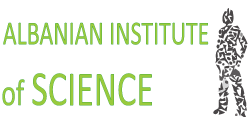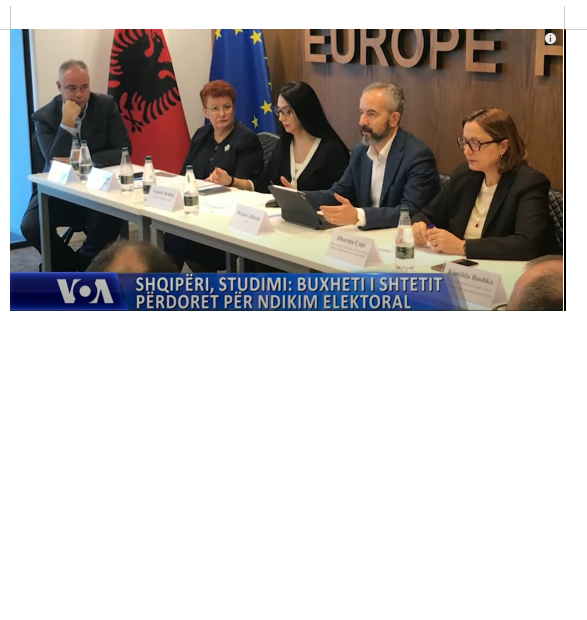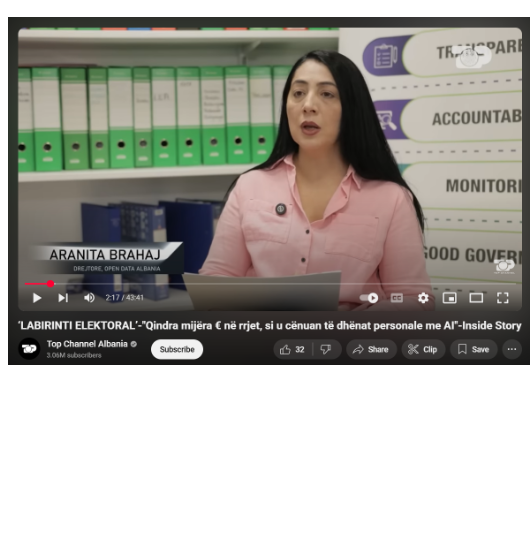Voice of America broadcasted several views from civil society experts calling for legal reforms to prevent the misuse of public funds for electoral purposes. The head of the Electoral Commission stated that the Electoral Law must be amended, as it does not address any of the situations raised.
Voice of America broadcasted several views from civil society experts calling for legal reforms to prevent the misuse of public funds for electoral purposes. The head of the Electoral Commission stated that the Electoral Law must be amended, as it does not address any of the situations raised.
In Tirana, the Albanian Institute of Science published the findings of a comparative study on the state budget and public finances during election years, highlighting increases in funds, employment, and bonuses just months before elections. Experts called for enhanced restrictive measures on the use of the budget for electoral influence benefiting the ruling majority, through tools such as normative acts, annual bonuses, and reconstruction funds.

The comparative study between election and non-election years by the research center Open Data Albania notes that the state budget appears to aim at influencing voters and securing electoral benefits for the ruling majority.
Explore the data and visual insights on how Albania’s state budget may have been used for electoral purposes.
The head of the Albanian Institute of Science, Aranita Brahaj, stated that this becomes evident when comparing electoral and non-electoral periods regarding the multi-year reconstruction program following the 2019 earthquake, individual payments for reconstruction grants, increased employment in the administration, and bonuses for pensioners.
“We are talking about 3.7 billion lek, which for the first time will be distributed in the spring. Bonuses for pensioners have been given at various times, usually at the end of the year. This year, we have two bonuses: one at the end of this year and another in the spring of 2025, which is also an electoral spring,” said Ms. Brahaj.
In addition to some changes in the Electoral Code, researchers called for legal prohibitions on the approval of acts that run parallel with public procurements.
Legal expert at the Institute of Science and author of the study, Viktor Gumi, stated that the normative act for reconstruction remains in force and has been implemented for many years.
“Despite more than five years having passed since the natural disaster of the earthquake, this act remains in force and is a mechanism that is supplied, I assess, from the perspective of a political strategy, for political effect, for electoral effect. The most logical question at this point is: Why should we have special ad hoc rules over such a long period when the public procurement law has very well-defined procedures for this direction and is also evaluated by international institutions as a very good law in accordance with European Union directives,” said Mr. Gumi at the gathering.

Researchers emphasized that the Parliament needs to refrain from changing the state budget with Normative Acts, which are applied even during the year or the electoral period, while the law on the budgetary system should include preventive mechanisms against possible abuse in election years or shortly before the date of general and local elections.
Public economy and auditing expert, Lindita Lati, highlighted the consequences that high non-profit expenditures, budget politicization, tax evasion and revenue reduction, low transparency and accountability, as well as the increase of the budget deficit bring to the economy during election years.
“The game played with the budget deficit is not at all pleasant from our point of view as auditors. The year 2017 showed us that the government, precisely to declare that it had the budget deficit under 2 percent of GDP, which is a legal obligation, we saw that manipulations were made in the methodology of assessing the budget deficit. Not to mention the hidden budget deficit, which comes from arrears,” said Ms. Lati.

The Electoral Code states that four months before the election date until the formation of the new government after the elections, the proposal, approval, or issuance of legal or sub-legal acts to provide benefits for certain categories of the population such as salary increases, pensions, economic and social support, tax reductions or exemptions, fiscal amnesty, privatizations or asset allocations or bonuses, is prohibited, except in cases of natural disasters.
Experts stated that this article needs to be detailed to add restrictions, while the State Election Commissioner, Ilirjan Celibashi, said that improving this article and many others requires the political will of parties in Parliament.
“For all the provisions of the Electoral Code and for all the issues under discussion, I think we need to modernize and truly make the entire regulatory framework of election development in Albania. We have in force a code from 2008, which has been continuously patched. We need a new electoral code, and this work should start immediately after the next elections with the will of political parties,” said Mr. Celibashi.

The study notes that the Constitution does not set rules on the state budget in election years, while the relevant law specifies that the budget deficit should be executed almost uniformly in the four quarters of the year with general elections, while researchers assessed that existing legal measures are insufficient to avoid the electoral use of the state budget.
You can access the original article at the following link: https://youtu.be/qlRWnubJpYo?si=sLbHLrGT2rHWQFL4




